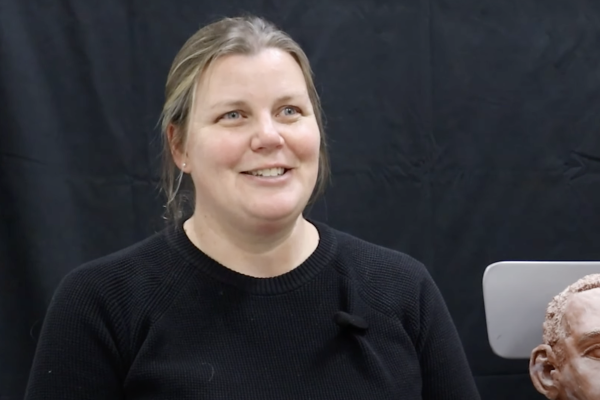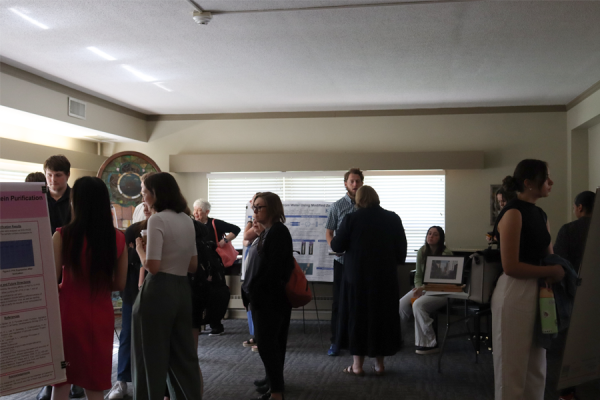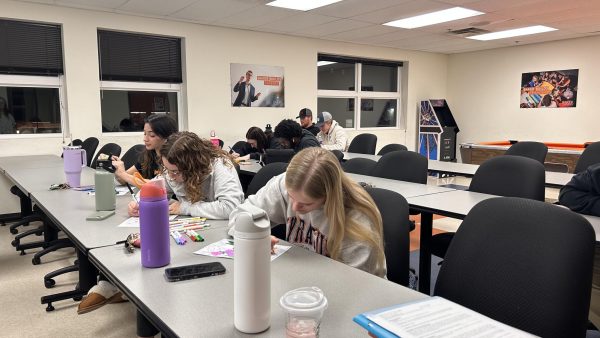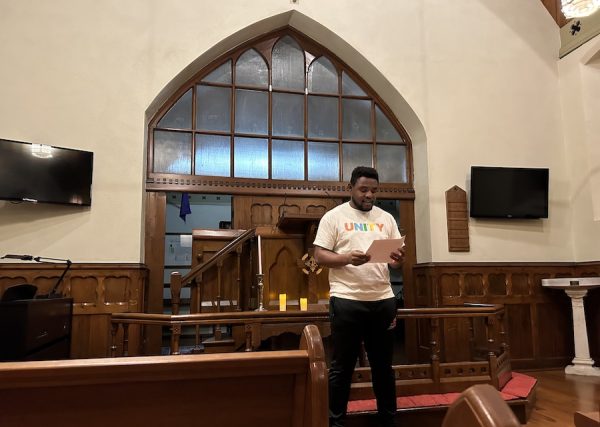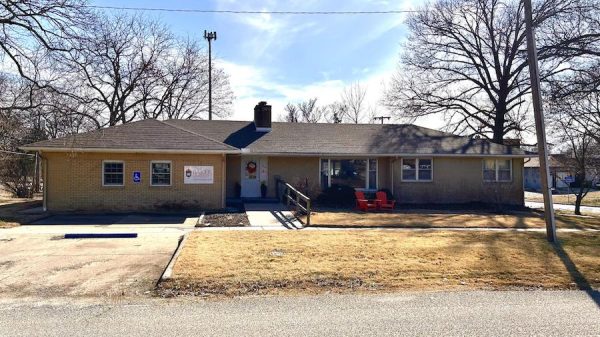Criminology course gives students new perspective
November 21, 2013
One group of Baker University students is taking its education out of the classroom and to a new site: the Topeka Correctional Facility.
“You can sit in a class your whole entire year, or you can go sit in a prison,” Jacob Bucher, associate professor of sociology, said. “It’s different, and everyone needs a little difference.”
Bucher and his criminology class drive up to the prison every Wednesday to hold their classroom sessions. In its fifth semester at Baker, this unique course is something that Bucher said he believes in not only for criminal justice but also for his teaching.
“It’s the idea of creating a different learning opportunity, and creating a real life opportunity for students,” Bucher said. “I don’t know if there is another class at Baker where you can have these kinds of discussions with this kind of depth.”
In addition to the group of students from Baker, the women’s facility also has its own students who attend the class. Together, the prisoners and BU students address the myths and realities of prison life, and how the stereotypes attached to the prison system create difficulties during rehabilitation.
“There is just a lack of rehabilitation for these prisoners,” junior Avery Vogts, a student in Bucher’s course, said. “They’re not given a chance to learn from their mistakes, to start over. They’re just punished. It’s important that we see things from their point of view. They want to do good so bad, but we as a society don’t let them.”
The imprisoned women share personal stories about what led them to their incarceration and their daily lives in the correctional facility. Bucher wanted the program to be at the women’s prison due to its lack of state funding and programming.
Vogts and many of the other students admitted to being nervous during their first visit to the prison. But after interacting with the women, most can attest to a changed perspective.
“A lot of us felt intimidated and nervous going in to it, but as the semester has gone on, that stereotype of women in prison has been broken,” senior Garrett Andersen, another student in the course, said. “Each person is different, each story is different, and that has helped us break the judgments that we had coming into the class.”
The class has no exams and no lectures; it’s purely discussion. Bucher admits that it might be a weird way of learning, but the material and attitude of the course shapes both the Baker students’ and prisoners’ perceptions.
Both Baker students and the prisoners have to apply to be a part of the program. Bucher looks for creative thinking and discussion abilities, as well as what he believes the person can get out of the class. It is open to all majors, and he believes that everyone can learn something from the class.
“I think I’ve learned that it’s really given me a different perspective on not just going based on all the norms in society,” Vogts said. “You start thinking outside of that and it shows that you can’t just judge people on what they’ve done. You need to understand the underlying issue, and that wouldn’t be possible if I hadn’t been a part of this class.”
As an end-of-semester project, the class puts together a proposal for the facility on how they can better their system. In the final ceremony, students receive certificates and T-shirts and the warden gets the proposals.
This project gives students a chance to reach further than just what they have learned in the class — it gives them a hands-on opportunity to make a difference.
“It’s really empowering,” Vogts said. “You think you’re doing something (that) can actually make a real change in the system, but it’s also a little discouraging because you think ‘how can I affect the prison system at large?’ It’s almost impossible, but we have to start somewhere.”



